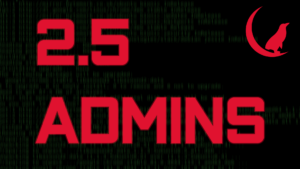
 2.5 Admins
2.5 Admins 2.5 Admins 218: TLS TTL
Oct 24, 2024
SSL and TLS certificates are getting shorter lifespans, sparking debate among sysadmins. The latest Windows 11 update is causing massive data retention issues and compatibility problems with certain SSDs. There’s a dive into modern DHCP server options for home routers and tips for using ZFS to securely backup data on a friend's NAS. Exploring the intricacies of encrypted snapshots, replication processes, and VPN enhancements adds a layer of tech-savvy excitement.
Chapters
Transcript
Episode notes

